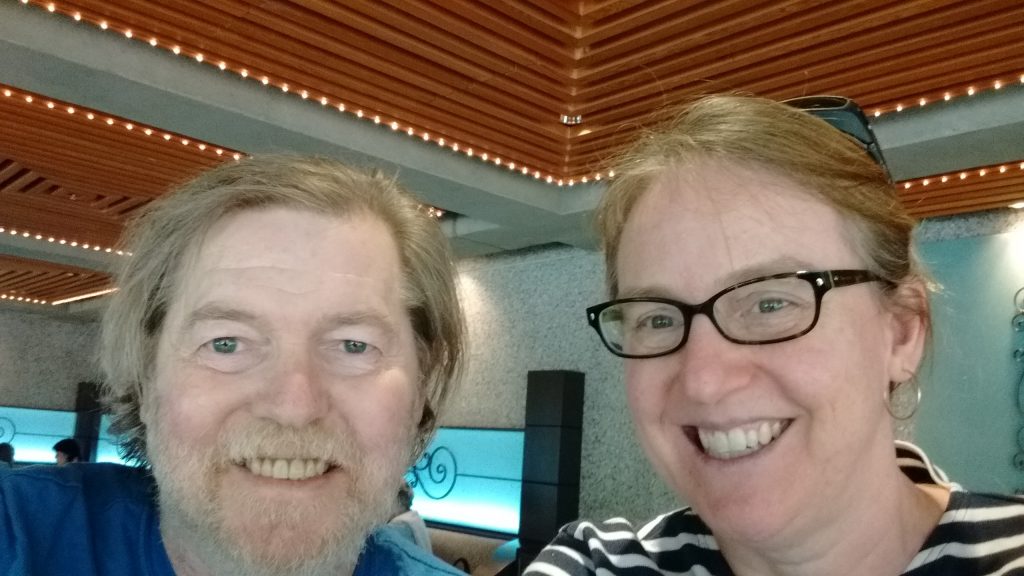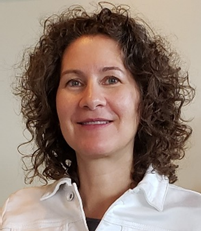Posted • Last updated
Categories: My Experience
Our second guest blog post for Patient Experience Week is from Beth Campbell Duke, a PVN Patient Partner with a caregiver’s perspective on “wrap around” health care.
For us, it was a long journey to get my husband referred for a lung transplant. Due to circumstances at our GP’s clinic, we saw three different physicians over a short time – two of whom did not make us feel listened to. The GP we have now sent my husband to a Respiratory Specialist and he was referred from there.
When we arrived for our first appointment with the Transplant Clinic with Tony lugging his oxygen tank, they offered us an oxygen concentrator to use instead of the tank. We finally felt like we had landed in a place that “got us.”
It was a huge relief. We hadn’t realized how much emotional weight we had been carrying.
What we also didn’t realize when we first started with the Transplant Clinic is the extraordinary difference it makes to experience “wrap around” health care delivered by a team. We had landed in the middle of a team that includes physicians, surgeons, nurses, a social worker, a dietitian and a psychologist. The post-transplant program also includes physiotherapists. The team works together closely during the week and they have regular team meetings to discuss cases.
It’s the structure of the team care environment that makes a world of difference. Because the team talks to each other, we get the benefit of everyone’s experience and knowledge. Issues are assessed and discussed with input from many perspectives, and we really felt like our care extended beyond the kind of siloed care we’d been used to receiving with my husband’s long-term chronic illness. At last, we felt listened to; it was as though we finally had a voice.
When my husband was being seen only at the GP level of care he was dependent on the expertise of one GP. It’s easy to blame GPs for poor health care, but it’s important to remember that they are often working crazy hours and they can’t be expected to know all of the details for every medical issue that their patients present with. Our current GP will still do house calls, and his office calls to confirm appointments, even if they call you on a stat holiday. There’s no team for them to call on. There’s nobody there to say, “Hey, I have some resources, I’ll take responsibility for that issue.”
How can patients maximize the team-like environment in a system that isn’t quite there yet?
One thing we learned along the way is how to create and use our own patient binder. Post-transplant we still have access to the transplant team – and are followed-up with regularly, but it is up to us to manage medications, take good clinic notes so we can communicate with the transplant team and our GP, and stay on top of the outside specialists and programs we’ve been referred into.

Our own “system” of tracking medications and taking clinic notes has evolved as we worked with our GP in sorting out what information he needs and what we need to communicate with Transplant.
We like to say we’ve “deputized” ourselves as critical members of the team, and we’ve only really taken that feeling on-board as a result of our interaction with the Transplant Team. We don’t always know the technical aspects of each medical issue, but we keep dated notes about our questions at appointments as well as the answers and our required actions. This is especially important when we have new doctors because of hospitalization or a new referral. We kept our GP up to date with Tony’s progress in post-transplant recovery because he called us. We feel fortunate that both the Transplant Team and our GP are very good at explaining the issues. The Transplant Team has been invaluable in helping us navigate both the medical and social services systems.
It’s not yet perfect.
The downside to this, however, is that it requires a high level of involvement from me as my husband’s caregiver. The impact on family caregivers is an area that isn’t yet recognized fully. For now, one year post-transplant and after at least five years of his declining health, I am required to attend every medical appointment (in no small part because I’m still doing the driving). I look after his medications and appointment scheduling. We have encountered financial and emotional challenges as I struggled to work and to navigate the system. We are now in the process of moving from our current home in order to be closer to follow-up care and I am interviewing for work, so things are coming together. In my experience, all patients and caregivers need supports early in their patient journeys, to reduce unnecessary stress at an already-difficult time in their lives.
Author: Beth Campbell Duke
Beth is transitioning back to work after her husband’s double lung transplant last May. You can find our more about her and Tony on their transplant website: TransplantRogues.com.


